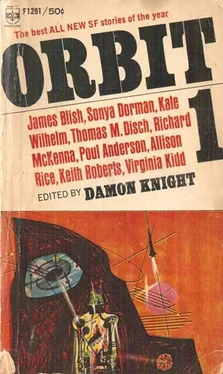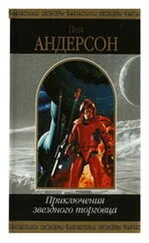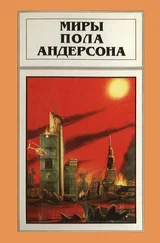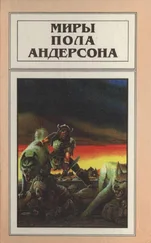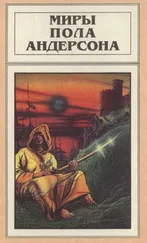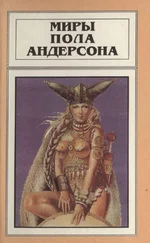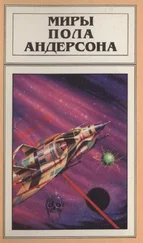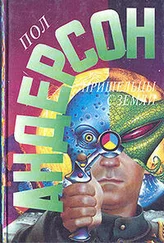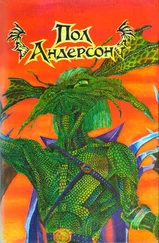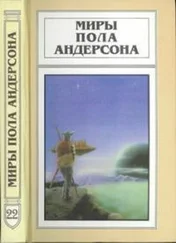Пол Андерсон - Orbit 1
Здесь есть возможность читать онлайн «Пол Андерсон - Orbit 1» весь текст электронной книги совершенно бесплатно (целиком полную версию без сокращений). В некоторых случаях можно слушать аудио, скачать через торрент в формате fb2 и присутствует краткое содержание. Год выпуска: 1966, Жанр: Фантастика и фэнтези, на английском языке. Описание произведения, (предисловие) а так же отзывы посетителей доступны на портале библиотеки ЛибКат.
- Название:Orbit 1
- Автор:
- Жанр:
- Год:1966
- ISBN:нет данных
- Рейтинг книги:4 / 5. Голосов: 1
-
Избранное:Добавить в избранное
- Отзывы:
-
Ваша оценка:
- 80
- 1
- 2
- 3
- 4
- 5
Orbit 1: краткое содержание, описание и аннотация
Предлагаем к чтению аннотацию, описание, краткое содержание или предисловие (зависит от того, что написал сам автор книги «Orbit 1»). Если вы не нашли необходимую информацию о книге — напишите в комментариях, мы постараемся отыскать её.
Orbit 1 — читать онлайн бесплатно полную книгу (весь текст) целиком
Ниже представлен текст книги, разбитый по страницам. Система сохранения места последней прочитанной страницы, позволяет с удобством читать онлайн бесплатно книгу «Orbit 1», без необходимости каждый раз заново искать на чём Вы остановились. Поставьте закладку, и сможете в любой момент перейти на страницу, на которой закончили чтение.
Интервал:
Закладка:
For a long time Staeen drifted without thought. He caught no glimpse of the Thosars, or their pale blue ship, nor of the scout. He did not expect to catch a glimpse of either of the two men. Scattered, he thought, in three different directions, the little boat in the fourth. He rested and thought alternately until he knew what the missing bits and pieces were. He was not built for smiling, but if he had been his smile would have been sad and understanding.
He recalled the psychology books of the Flonderans, so full of categorical statements, so certain of the rightness of the theories that guided them in their daily lives. It was said in those books that Earthmen had no innate response mechanisms.
Staeen fluttered his tentacles under the mantle that was slowly turning dull. He felt very stupid; he should have guessed at the start. He recalled the text, and the experiments with chickens raised for many generations with no exposure to chicken hawks, only to have the tenth generation, or the fifteenth generation react with the same blind panic when exposed to the bird as its distant ancestors had. Had anyone ever tried them after four hundred eighty generations? That was how many had passed since the last visit of the Thosars to the poor Flonderans huddling in their caves, panicked to insanity by the giants descending from the sky. Panicking, scattering. . The Thosars would not have pursued them, naturally. They were far too civilized to give chase, to intrude where they were not welcomed. They would have departed, hoping for a more advanced civilization on their next visit. Probably they were quite bewildered by the swift departure of the ships encountered in space during the past two years, but again, they would not have given chase. It was not their way. They would hope to contact the government. .
Staeen closed off the outer parts of himself until there was only a spark of intelligence left, and eyes to see with, and he drifted in space, now and again shuddering from an impact with a grainlike bit of space debris. Eventually the eyes were covered with the detritus of space and there was only the spark of intelligence. It amused him to think that one day, a million years, or a thousand million years in the future, he might be in the heart of a planet. There were no regrets in the thought. He had lived many thousands of years. This was one more great adventure.
For long periods of time his mind dwelled on the fate of the eggs he had left in the scout. They would survive. Practically indestructible, they would lie dormant until conditions were right, then they would ripen and swell with life, and his seed would do what his people had not done: inhabit another galaxy.
He let his mind go out to the Flonderans and their crowded world where the Thosars probably already had landed. Eventually the Thosars would relate the incident to the Chlaesans, and eventually they would arrive at the answer to the question. Eventually they would decondition the Flonderans, if there were any remaining by then.
Staras eku Flonderans, he thought. Poor, short-lived Earthmen.
RICHARD McKENNA spent more than twenty years in a life he hated, that of an enlisted man in the U. S. Navy. He looked like the Hollywood stereotype of a tough Irish machinist’s mate, but he was the most gentle man who ever walked the earth. Somehow he had escaped growing the callouses on his mind and heart that most people acquire in becoming adult. When he died in 1964, he left behind an unfinished novel that might have been better than The Sand Pebbles, and half a dozen unpublished short stories, including this one.
THE SECRET PLACE
By Richard McKenna
This morning my son asked me what I did in the war. He’s fifteen and I don’t know why he never asked me before. I don’t know why I never anticipated the question.
He was just leaving for camp, and I was able to put him off by saying I did government work. He’ll be two weeks at camp. As long as the counselors keep pressure on him, he’ll do well enough at group activities. The moment they relax it, he’ll be off studying an ant colony or reading one of his books. He’s on astronomy now. The moment he comes home, he’ll ask me again just what I did in the war, and I’ll have to tell him.
But I don’t understand just what I did in the war. Some-times I think my group fought a death fight with a local myth and only Colonel Lewis realized it. I don’t know who won. All I know is that war demands of some men risks more obscure and ignoble than death in battle. I know it did of me..
It began in 1931, when a local boy was found dead in the desert near Barker, Oregon. He had with him a sack of gold ore and one thumb-sized crystal of uranium oxide. The crystal ended as a curiosity in a Salt Lake City assay office until, in 1942, it became of strangely great importance. Army agents traced its probable origin to a hundred-square-mile area near Barker. Dr. Lewis was called to duty as a reserve colonel and ordered to find the vein. But the whole area was overlain by thousands of feet of Miocene lava flows and of course it was geological insanity to look there for a pegmatite vein. The area had no drainage pattern and had never been glaciated. Dr. Lewis protested that the crystal could have gotten there only by prior human agency.
It did him no good. He was told he’s not to reason why. People very high up would not be placated until much money and scientific effort had been spent in a search. The army sent him young geology graduates, including me, and demanded progress reports. For the sake of morale, in a kind of frustrated desperation, Dr. Lewis decided to make the project a model textbook exercise in mapping the number and thickness of the basalt beds over the search area all the way down to the prevolcanic Miocene surface. That would at least be a useful addition to Columbia Plateau lithology. It would also be proof positive that no uranium ore existed there, so it was not really cheating.
That Oregon countryside was a dreary place. The search area was flat, featureless country with black lava outcropping everywhere through scanty gray soil in which sagebrush grew hardly knee high. It was hot and dry in summer and dismal with thin snow in winter. Winds howled across it at all seasons. Barker was about a hundred wooden houses on dusty streets, and some hay farms along a canal. All the young people were away at war or war jobs, and the old people seemed to resent us. There were twenty of us, apart from the contract drill crews who lived in their own trailer camps, and we were gown against town, in a way We slept and ate at Colthorpe House, a block down the street from our head-quarters. We had our own “gown” table there, and we might as veil have been men from Mars.
I enjoyed it, just the same. Dr. Lewis treated us like students, with lectures and quizzes and frightened reading. He was a fine teacher and a brilliant scientist, and we loved him.
He gave us all a turn at each phase of the work. I started on surface mapping and then worked with the drill crews, who were taking cores through the basalt and into the granite thousands of feet beneath. Then I worked on taking gravimetric and seismic readings. We had fine team spirit and we all knew we were getting priceless training in field geophysics. I decided privately that after the war I would take my doctorate in geophysics. Under Dr. Lewis, of course.
In early summer of 1944 the field phase ended. The contract drillers left. We packed tons of well logs and many boxes of gravimetric data sheets and seismic tapes for a move to Dr. Lewis’s Midwestern university. There we would get more months of valuable training while we worked our data into a set of structure contour maps. We were all excited and talked a lot about being with girls again and going to parties. Then the army said part of the staff had to continue the field search. For technical compliance, Dr. Lewis decided to leave one man, and he chose me.
Читать дальшеИнтервал:
Закладка:
Похожие книги на «Orbit 1»
Представляем Вашему вниманию похожие книги на «Orbit 1» списком для выбора. Мы отобрали схожую по названию и смыслу литературу в надежде предоставить читателям больше вариантов отыскать новые, интересные, ещё непрочитанные произведения.
Обсуждение, отзывы о книге «Orbit 1» и просто собственные мнения читателей. Оставьте ваши комментарии, напишите, что Вы думаете о произведении, его смысле или главных героях. Укажите что конкретно понравилось, а что нет, и почему Вы так считаете.
